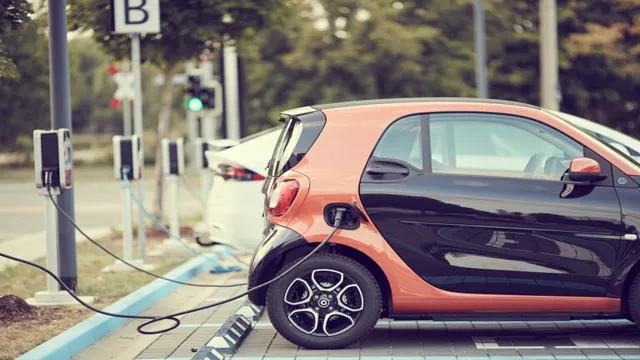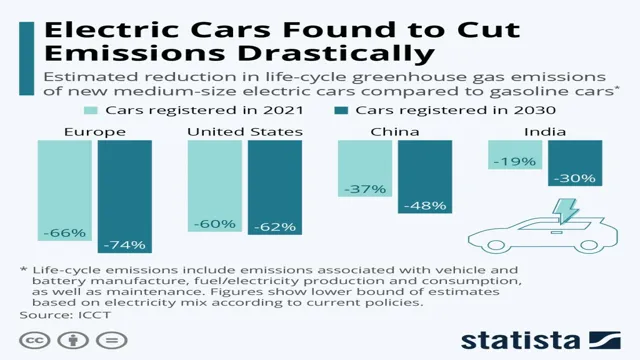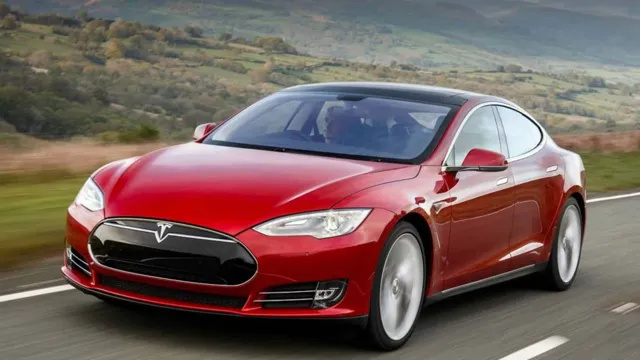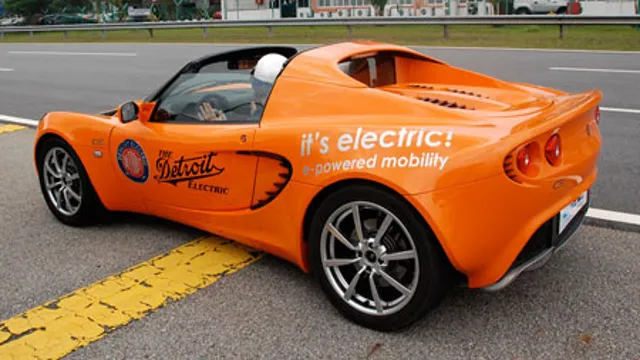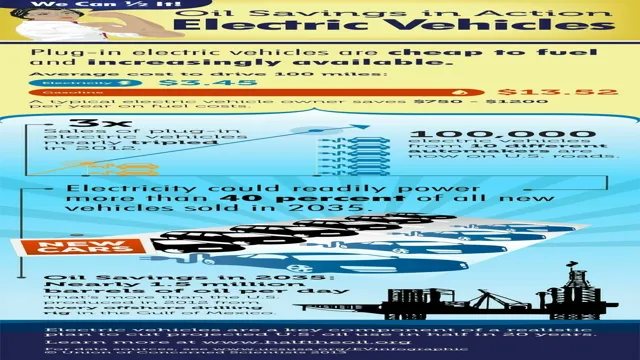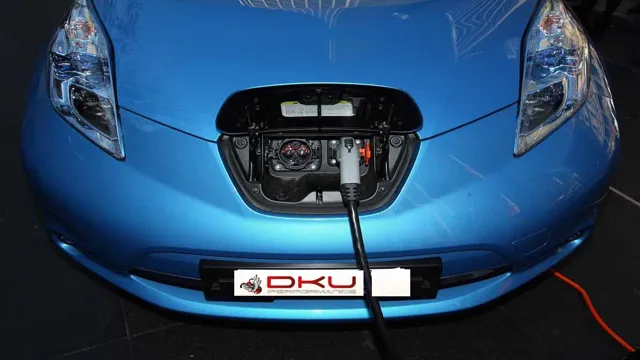Revving Up the Benefits: How Electric Cars are Driving Positive Change in Communities
Electric cars are becoming increasingly popular among drivers worldwide, and it’s not difficult to see why. With their many benefits, they’re proving to be a valuable asset to communities and the environment. From lower maintenance costs to reduced emissions, electric vehicles are taking the automobile industry by storm.
In this blog, we’ll take a closer look at the many benefits of electric cars in communities, including monetary savings, environmental impact, and enhanced driving experience. So, buckle up and let’s dive into the world of electric cars!
Reduced Emissions
Electric cars have greatly benefited communities by reducing harmful emissions that pollute the environment. The shift towards electric vehicles has enabled people to go green, and it has had a significant impact on our environment. These cars produce significantly less carbon dioxide, nitrogen oxides, and particulate matter than traditional gas-powered engines.
Studies have shown that electric cars produce fewer greenhouse gases, and this has led to cleaner air and healthier living conditions in many urban areas. Moreover, electric cars have played a critical role in reducing air pollution, diesel engines’ primary source by converting urban areas into emission-free zones. With electric cars, communities are experiencing a reduction in noise pollution, fewer respiratory problems, and overall improved health.
Using electric cars is a sustainable solution that reduces our dependence on fossil fuels while reducing carbon footprints. The reduced emissions have created a cleaner environment and helped save resources that are essential for future generations. As a result, electric cars have become an essential tool in the fight against climate change.
Decrease Air Pollution and Improve Health
Reduced Emissions If we want to decrease air pollution levels and improve our overall health, one of the most important things that we can do is reduce emissions. Emissions are a major contributor to air pollution, and reducing them can have significant benefits for both our environment and our health. One way to reduce emissions is to drive less, walk more, or take public transportation.
Another way is to switch to more energy-efficient appliances and vehicles, which produce fewer emissions. By making small changes in our daily lives, we can make a big difference in the quality of the air that we breathe and the health of our communities. Not only will we be doing our part to help the environment, but we’ll also be taking care of ourselves and our loved ones by reducing our exposure to harmful pollutants.
So, let’s all do our part by reducing our emissions and making our planet a cleaner and healthier place to live in.
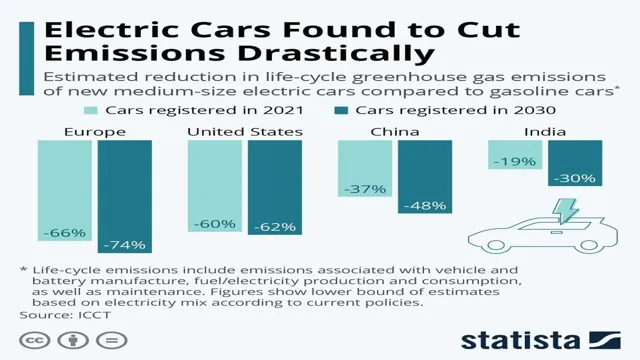
Combat Climate Change and Reduce Greenhouse Gases
Reduced Emissions Reducing greenhouse gas emissions is critical to combatting climate change, which threatens the health of our planet and our communities. At the heart of this issue is carbon dioxide, emitted primarily through the burning of fossil fuels for energy. There are many ways to reduce emissions, including using renewable energy sources like wind and solar power, boosting energy efficiency, and improving public transportation.
We can also reduce emissions by implementing smarter land use practices, protecting and restoring forests and other natural systems, and promoting sustainable agriculture. We all have a role to play in reducing our carbon footprint, from making small changes in our daily routines to supporting policy changes that promote clean energy and reduce emissions across the economy. By working together, we can make a meaningful difference in curbing climate change and protecting our planet for generations to come.
Lower Costs for Consumers
One of the biggest benefits of electric cars is their ability to lower costs for consumers. These vehicles have lower operational costs than their gasoline counterparts, and this translates into savings for drivers. Because electric cars require less maintenance and have fewer parts than traditional cars, repairs are generally cheaper, and they need to be fixed less often.
Additionally, because electric cars can be powered by renewable energy sources, such as solar or wind, consumers can save money on fuel costs. While electric cars may seem more expensive upfront, the long-term savings they provide make them the best option for anyone looking to cut costs. Ultimately, electric cars are making a significant impact on communities by helping to reduce the burden of high transportation costs for consumers.
Less Expensive to Operate and Maintain
When it comes to HVAC systems, homeowners are always looking for ways to lower their energy bills and save money. One advantage of modern HVAC systems is that they are less expensive to operate and maintain than older systems. This is because they are designed to be more energy-efficient, which means they require less power to run.
Additionally, new HVAC systems are less likely to break down or require expensive repairs, which can save homeowners even more money in the long run. By investing in a new, more efficient HVAC system, homeowners can save money on their energy bills and enjoy a more comfortable home without worrying about costly repairs or maintenance issues. Overall, the lower costs associated with modern HVAC systems make them an excellent choice for homeowners looking to save money and reduce their environmental impact.
So, if you’re looking to upgrade your HVAC system, consider investing in a modern, energy-efficient model that can save you money and improve your overall quality of life.
Potential for Lower Energy Bills and Tax Credits
The adoption of clean energy systems such as solar panels has the potential to lower energy bills for consumers. With solar power, homeowners and businesses can generate their electricity, significantly reducing their reliance on the utility grid. Moreover, solar panels can last up to 25 years or more, providing a long-term solution to high energy costs.
In addition to lower energy bills, the adoption of solar technology can also lead to tax credits for the consumer, making it an even more attractive investment. Tax credits for renewable energy are available at both the federal and state levels, helping homeowners and businesses save even more money. With the potential for lower energy costs and the opportunity for tax credits, switching to solar energy is a smart move for consumers looking for a long-term solution to high energy bills.
Improved Infrastructure
Electric cars have brought about a lot of benefits to communities, and one of the most prominent is the improved infrastructure for charging stations. Many governments and businesses have recognized the need for more accessible charging stations, and they’ve responded by investing in better infrastructure. From residential streets to public parking lots, electric vehicle charging stations are popping up everywhere, making it easier than ever for people to charge their cars on the go.
This increased infrastructure means that people can travel farther in electric vehicles and make fewer stops to charge up, which is a significant convenience. Also, this infrastructure is creating new jobs and revenue streams for businesses and communities that have invested in it. Overall, electric cars have brought about a positive change in communities by improving the infrastructure and making it more accessible for everyone.
Expansion of Charging Stations
The expansion of charging stations is an essential part of improving infrastructure for electric vehicles. With more people switching to EVs, it’s vital to have convenient and accessible charging stations readily available. This development means less range anxiety and a more seamless journey for drivers.
In some urban areas, there are already charging stations on every block, and there are plans to add more in suburban and rural locations. The need for improved infrastructure will require significant investment from both the private and public sectors to ensure that accessibility is always a priority. The widespread expansion of charging stations will make owning an EV less stressful and more practical for daily use, driving growth in the electric vehicle market.
The increased use of EVs will also have a positive impact on the environment, as they produce fewer emissions than traditional gasoline-powered vehicles. Overall, the expansion of charging stations is crucial to the widespread adoption of EVs and the creation of a sustainable transportation future.
Creation of Jobs for Local Technicians
Improved infrastructure can lead to the creation of jobs for local technicians. When governments and private companies invest in upgrading roads, bridges, and other critical infrastructure, it requires a skilled workforce to complete the projects. This is where local technicians come into play.
These individuals have a wealth of knowledge and experience in their specific fields, and by hiring them to work on infrastructure projects, companies and governments are not only improving their infrastructure but also boosting the economy by creating job opportunities for locals. For example, if a new highway is being built, it takes a team of technicians to develop and implement the plans. This team can include civil engineers, electricians, and construction workers, among others.
By hiring locals for these jobs, the economy benefits in multiple ways. Local technicians have a stake in their community and want to see it thrive, which often leads to a higher quality of work and a sense of pride in a job well done. Moreover, these jobs typically require specialized skills, which means higher wages for local technicians, which can boost their standard of living and provide them with greater financial stability.
In turn, they can invest more in their local communities, which can lead to even more economic development. In conclusion, investing in improved infrastructure is a win-win situation for everyone involved. By creating job opportunities for local technicians, governments and private companies are not only improving infrastructure but also boosting the local economy and providing residents with greater financial stability.
This positive feedback loop benefits everyone and can be a catalyst for long-term economic growth.
Increased Energy Efficiency
Electric cars have remarkably benefited communities in various ways, including increased energy efficiency. One of the most significant benefits of electric cars is their energy efficiency. Unlike gasoline-powered vehicles that use fossil fuels, electric cars run on rechargeable batteries that generate less or no greenhouse gas emissions.
The batteries are lighter and more efficient compared to gasoline tanks, which means that the energy goes directly to powering the car’s motor. With electric cars, energy can be harnessed from renewable sources such as wind and solar to charge the batteries. This means that communities can achieve a significant reduction in greenhouse gas emissions and improve air quality.
Furthermore, electric cars have fewer moving parts compared to gasoline vehicles, which translates to less wear and tear and lower maintenance costs. In conclusion, electric cars have improved energy efficiency, reduced greenhouse gas emissions, and provided long-term economic benefits to communities.
Use of Renewable Energy Sources
Renewable Energy Sources Energy efficiency is the key to unlocking the full potential of renewable energy sources. By improving our energy efficiency, we can reduce our dependence on non-renewable energy sources and promote the use of clean and sustainable energy sources. There are many ways to improve our energy efficiency, such as upgrading our appliances, optimizing our building design, and reducing our energy consumption.
For example, by using energy-efficient light bulbs or upgrading to an Energy Star-rated appliance, we can significantly reduce our energy consumption and lower our carbon footprint. Additionally, by optimizing our building design with features such as natural ventilation and daylighting, we can reduce our need for heating and cooling systems, further reducing our energy consumption. Ultimately, by using renewable energy sources and increasing our energy efficiency, we can pave the way for a more sustainable and cleaner energy future for generations to come.
Less Dependence on Foreign Oil
Increased energy efficiency can play a vital role in reducing our dependence on foreign oil. Finding ways to consume less energy can help us to stretch our existing domestic resources further, thereby decreasing the volume of oil we need to import from abroad. One way to do this is through the use of energy-efficient appliances, which can reduce the amount of electricity we need to power our homes and businesses.
Another way is through sustainable transportation systems, which reduce our reliance on gasoline and diesel fuel. This might include electric vehicles, public transit systems, or cycling and walking infrastructure. By making strategic investments in energy efficiency, we can reduce our carbon footprint, save money on energy bills, and protect our energy security for years to come.
So, let’s all do our part to make the most of the energy we have and ensure that we continue to enjoy a reliable and sustainable energy supply for generations to come.
Conclusion
As electric cars continue to gain popularity, they’re not just benefiting individual drivers, but entire communities. With reduced emissions, quieter streets, and economic stimulus from the development of charging infrastructure and manufacturing jobs, electric cars are proving to be a win-win for both the planet and the people who inhabit it. So next time you’re cruising silently down the road in your electric vehicle, give yourself a pat on the back for doing your part to make your community a cleaner, healthier, and more sustainable place to live.
“
FAQs
What are the environmental benefits of electric cars in communities?
Electric cars emit significantly less harmful pollutants compared to gasoline-powered cars, leading to improved air quality and reduced health risks for residents in the community.
How have electric cars impacted the economy of communities?
By reducing dependence on foreign oil and supporting domestic electricity production, electric cars have the potential to create jobs and increase economic growth within communities.
What are the cost savings associated with owning an electric car in communities?
Electric cars offer reduced fuel and maintenance costs compared to traditional cars, which in turn provide economic benefits to both individual drivers and the community at large.
How have electric cars improved the overall quality of life in communities?
Electric cars produce less noise pollution, reducing noise levels in busy urban areas and promoting a quieter, more peaceful community environment.

